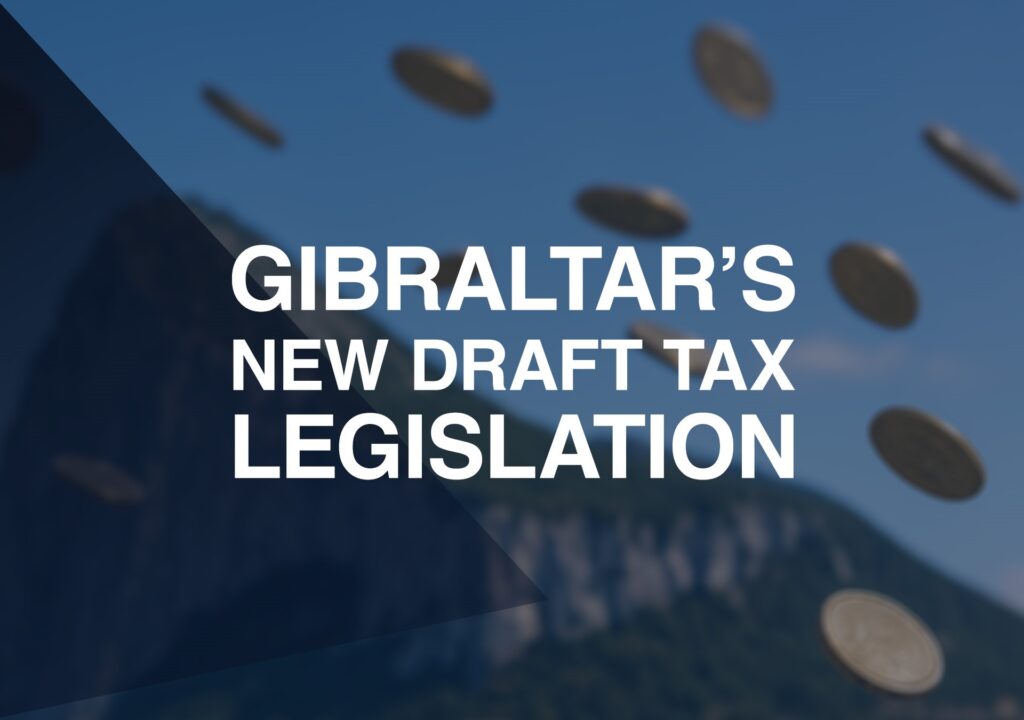The Income Tax (Amendment) Act 2024 (“the Amending Act”) was passed last week and establishes amendments to the Income Tax Act 2010 (“the Old Act”), in particular, the extension of paragraph 15, Schedule 3 to insurance companies and Distributed Ledger Technology (DLT) firms. The Amending Act applies with effect for the accounting periods commencing on or after 1 February 2024.
The main changes brought about are as follows:
1. The extension of paragraph 15, Schedule 3 to insurers and DLT firms;
2. Interest income and similar amounts of relevant entities shall be taxable; and
3. Introduction of anti-avoidance provisions to capture disposals to connected persons.
Under paragraph 15, Schedule 3 of the Old Act, only interest income of money lenders and deposit taking institutions was treated as trading income and therefore subject to taxation in Gibraltar. This scope is now extended to insurers and DLT firms. The amendment was designed to clarify the tax treatment of Gibraltar insurance and DLT firms and provides that any profits accrued as interest or similar amounts would be chargeable to corporation tax in Gibraltar.
Relevant Entities
The scope of paragraph 15, Schedule 3 now applies to the interest income and similar amounts of any entity which:
– carries on the activity of money lending to members of the general public;
– is in receipt of interest on funds derived from the regulated activity of accepting deposits as set out in paragraph 3 of Schedule 2 of the Financial Services Act;
– has permission under Part 7 of the Financial Services Act 2019 to carry on the regulated activity of effecting or carrying out contracts of insurance; or
– has permission under Part 7 of the Financial Services Act 2019 to carry on the regulated activity of using distributed ledger technology (DLT) for the storage or transmission of value.
Trading Income of Relevant Entities
The profits of the relevant entities derived from interest bearing-like products, also referred to as “similar amounts”, shall now be included as trading income and taxable in Gibraltar. For the purposes of clarification, similar amounts mean the profits or gain or a Relevant Entity from –
– any instrument paying a recurring amount of income calculated by reference to a transaction for the lending of money whether such instrument directly evidences a transaction pursuant to which money is loaned or advanced or is a derivative instrument referencing such a transaction and whether or not such amount is paid to the initial parties to such an instrument or to a person to whom the benefit of such instrument is assigned or otherwise transferred;
– lending advancing or otherwise generating income from virtual assets by means of an arrangement under which, in return for value (calculated in relation to a percentage of the value or number of those virtual assets or otherwise benchmarked to their characteristics) – (1) another person or entity is permitted to use the virtual assets; or (2) the virtual assets are used to validate transactions on a proof of stake blockchain or any similar consensus mechanism;
– discounts; or
– any other arrangement (whether legally enforceable or not) in relation to which it is reasonable to assume that the main purpose, or one of the main purposes, of those arrangements is the avoidance of the charge to tax on interest under this paragraph.
Anti-avoidance provisions
The Amending Act has also introduced anti-avoidance provisions to capture disposals to connected persons of the relevant entities, to ensure that in-scope taxpayers do not circumvent their tax obligations. However, such anti-avoidance provisions shall not apply to entities who provide evidence to the satisfaction of the Commissioner that the avoidance of tax was not the main purpose of the disposal.
For any further queries, or if you wish to discuss these changes further, please contact us at stuart.dalmedo@isolas.gi





